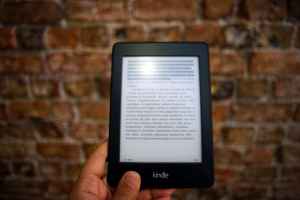My Ideal Reading Experience in Twenty Twenty-Four
It’s tempting to romanticize the ideal reading experience. To conjure images of a crackling fireplace, a worn leather armchair, and a steaming mug of something warm and comforting. While those elements certainly have their place, my ideal reading experience is less about the setting and more about a state of mind.
It’s about achieving that perfect mental stillness, where the outside world fades away and I can fully immerse myself in the words on the page. It’s about that feeling of being transported, of experiencing another world, another life, through the power of language.
Sometimes, this happens curled up in a sunbeam on a lazy Sunday morning. Other times, it’s on a crowded train, surrounded by the cacophony of urban life, where the book becomes a sanctuary, a quiet space in a noisy world. It could even be in a bustling cafe, the aroma of coffee and the murmur of conversations creating a surprisingly conducive backdrop.
The point is, the “where” and “when” are less important than the ability to truly connect with the text. It’s about giving myself permission to slow down, to unplug from the constant digital hum, and to simply be present with the words.
Recent Literary Discoveries
To say one learns “everything and nothing” from books, as I once did, is a simplification. Every book, every poem, is a conversation, a chance to engage with new ideas and perspectives. While my early poetic influences were undoubtedly Ezra Pound and Robert Lowell – Pound for his ambitious scope and unexpected tenderness, Lowell for his sheer versatility – I am constantly seeking out new voices, new stories.
My Eclectic Nightstand
My nightstand is a testament to my eclectic reading habits. A curated chaos of fiction, non-fiction, poetry, and even the occasional children’s book. Currently, it houses:
Fiction:
- “Patriotism” by Yukio Mishima: A slim but powerful exploration of nationalism and sacrifice.
- “Voyage in the Dark” by Jean Rhys: A haunting and lyrical novel about displacement and alienation.
- “Flight Without End” by Joseph Roth: A captivating tale set against the backdrop of pre-war Europe.
- “The Little Auto” by Lois Lenski: A charming children’s book that reminds me of simpler times.
Non-Fiction:
- “The Collected Poems of Delmore Schwartz”: A masterclass in language and introspection.
- “The Essays of Frank Kermode”: A collection of insightful and thought-provoking pieces.
- “The Rest Is Noise” by Alex Ross: A fascinating exploration of twentieth-century music.
- “The Free World” by Louis Menand: A sweeping intellectual history of the postwar era.
- “Skyfaring” by Mark Vanhoenacker: A lyrical ode to the wonder of flight, a passion we share.
And speaking of passions…
“Skyfaring” resonates deeply with my love for speed, for the exhilaration of movement. This fascination extends beyond airplanes to encompass motorcycles, Formula racing, anything that embodies a sense of velocity and freedom. It’s a recurring motif in my own poetry, particularly my poems celebrating the beauty and power of Italian motorcycles, especially those crafted by Ducati.
A Literary Rebel?
Has a book ever gotten me in trouble? Perhaps in my youth. I vividly recall the thrill of discovering Maurice Girodias’s banned books in Paris. Henry Miller, among others, became a source of both literary and slightly illicit pleasure. Girodias himself, a champion of the censored and the controversial, was a figure of intriguing defiance. His bookstore, a haven for forbidden literature, was a testament to the power of words to challenge and provoke.
Bridging the Gap Between Classic and Contemporary Literature
While I hold a deep appreciation for literary giants like Pound, Lowell, and the controversial figures championed by Girodias, I find equal joy in discovering new voices pushing the boundaries of contemporary literature. The landscape of storytelling is constantly evolving, and I believe it’s crucial to engage with both the classics and the works that reflect our current times.
One recent discovery that captivated me is Raven Leilani’s “Luster.” Leilani’s prose is raw, honest, and often darkly funny, offering a fresh perspective on race, relationships, and modern life in America. Her protagonist, Edie, is a character who stays with you long after you finish the last page.
Another author who has caught my eye is Brandon Taylor. His debut novel, “Real Life,” is a nuanced exploration of identity and belonging, set against the backdrop of a Midwestern university. Taylor’s writing is both precise and evocative, delving into the complexities of human relationships with sensitivity and insight.
These are just two examples of the exciting work being done by contemporary authors. I believe it’s essential to keep our minds open to new voices and perspectives, to allow ourselves to be challenged and surprised by the power of storytelling. For me, that’s what makes the reading experience so endlessly rewarding.
The Importance of Sharing Stories
The act of reading, however, is only one half of the equation. Just as crucial is the sharing of stories, the engaging in dialogues about the books that move us, challenge us, and stay with us long after we’ve turned the final page. Whether it’s a lively discussion with friends over coffee, a thoughtful review shared online, or even just a quiet moment of reflection, the impact of a good book is amplified when we share it with others. It’s in these exchanges that we gain new insights, broaden our understanding, and forge connections through the shared language of literature.
So, go forth, dear reader, and embrace the joy of discovering new worlds within the pages of a book. And when you find a story that resonates with you, don’t be afraid to share it with the world. After all, the magic of reading is only truly complete when it’s shared.






